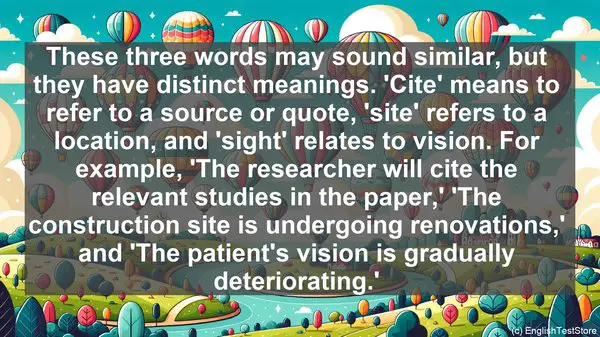Introduction
Effective communication in the field of health is crucial. However, there are several words that are often used interchangeably, leading to confusion. In this lesson, we will explore the top 10 commonly confused words in health communication.
1. Affect vs. Effect
The word ‘affect’ is usually used as a verb, meaning to influence or have an impact on something. On the other hand, ‘effect’ is typically a noun, referring to the result or consequence of an action. For example, ‘Smoking can affect your lung health’ and ‘The side effects of the medication include drowsiness.’
2. Compliment vs. Complement
While ‘compliment’ means to praise or express admiration, ‘complement’ refers to something that completes or enhances another. For instance, ‘The doctor complimented the patient on their progress’ and ‘The vitamins complement the diet to improve overall health.’
3. Principal vs. Principle
The word ‘principal’ is commonly used as a noun, denoting a person who holds a high position, such as the head of a school. On the other hand, ‘principle’ is a noun that refers to a fundamental truth or belief. For example, ‘The principal of the hospital made an announcement’ and ‘The principle of patient autonomy is crucial in healthcare.’
4. Stationary vs. Stationery
While ‘stationary’ means not moving or fixed, ‘stationery’ refers to writing materials, such as paper and pens. For instance, ‘The patient’s condition is stable and stationary’ and ‘The doctor wrote the prescription on the clinic’s stationery.’

5. Elicit vs. Illicit
The word ‘elicit’ means to draw out or evoke, often used in the context of obtaining information or a response. On the other hand, ‘illicit’ is an adjective that describes something illegal or forbidden. For example, ‘The doctor tried to elicit the patient’s medical history’ and ‘The sale of illicit drugs is a serious concern.’

6. Allude vs. Elude
While ‘allude’ means to indirectly refer to something, ‘elude’ means to escape or avoid. For instance, ‘The doctor’s statement seemed to allude to a potential complication’ and ‘The cause of the patient’s symptoms continues to elude the medical team.’
7. Cite vs. Site vs. Sight
These three words may sound similar, but they have distinct meanings. ‘Cite’ means to refer to a source or quote, ‘site’ refers to a location, and ‘sight’ relates to vision. For example, ‘The researcher will cite the relevant studies in the paper,’ ‘The construction site is undergoing renovations,’ and ‘The patient’s vision is gradually deteriorating.’
8. Than vs. Then
While ‘than’ is used to make comparisons, ‘then’ is often used to indicate time or sequence. For instance, ‘The new treatment is more effective than the previous one’ and ‘First, the patient will undergo a physical examination, and then the necessary tests will be ordered.’
9. Farther vs. Further
Both these words relate to distance, but there is a subtle difference. ‘Farther’ is used for physical distance, while ‘further’ is often used in a metaphorical or figurative sense. For example, ‘The hospital is farther from here than I thought’ and ‘The research aims to further our understanding of the disease.’
10. Accept vs. Except
The word ‘accept’ means to receive or agree to something, while ‘except’ is often used to exclude or make an exception. For instance, ‘The patient accepted the doctor’s treatment plan’ and ‘Everyone attended the meeting except for one person.’
